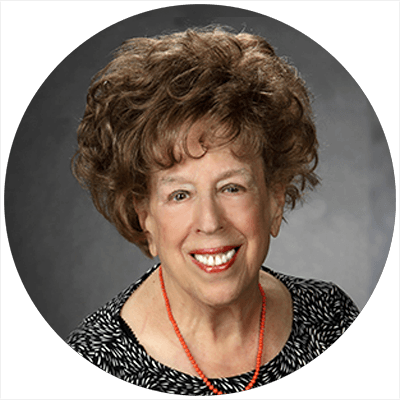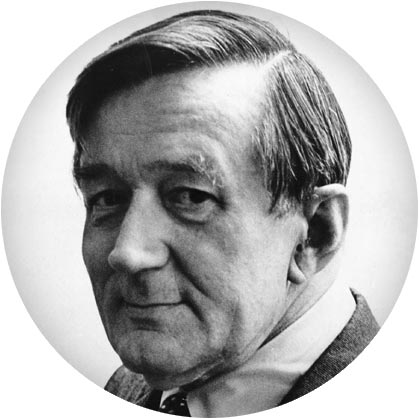The Polykarp Kusch Lecture Series
Concerns of the Lively Mind
Our Journey Home
My Life and Work in Dallas

Dr. Zsuzsanna Ozsváth
Leah and Paul Lewis Chair of Holocaust Studies
Director of Holocaust Studies
School of Arts and Humanities
Friday, April 20, 2018
2-3 p.m.
Davidson-Gundy Alumni Center
Graves Ballroom A, DGA 1.102
The public is invited to attend this free lecture.

Dr. Zsuzsanna Ozsváth takes us on her life’s journey, through the turmoil of the Holocaust and post-war Russian occupation to the triumphs of self, love and family. Fleeing from her native Hungary, through Austria to Germany, Dr. Ozsváth’s path brought her to Texas and ultimately The University of Texas at Dallas. As a literary scholar, historian and touchstone, Dr. Ozsváth continues to shed light on the past and share her insights with the next generation of scholars.
Dr. Zsuzsanna Ozsváth
Zsuzsanna Ozsváth is founder and director of the Holocaust Studies Program. She has published a number of articles, dealing with aesthetic and ethical issues in French, German, and Hungarian literature as well as with the relationship between art and totalitarian ideology. Since the 1980’s, she has undertaken several translation projects and worked on various branches of Holocaust studies.
“The Holocaust Studies Program, with its combination of scholarly research, education at both the undergraduate and graduate levels and its distinguished lecture series, is one of the distinguishing hallmarks of UT Dallas. The program’s success is a result of Dr. Ozsváth’s passionate dedication and charismatic leadership,” Provost Hobson Wildenthal said when she was named to the Leah and Paul Lewis Chair of Holocaust Studies in 2003.
In the field of translation, she started out with rendering and publishing a significant number of German and Hungarian poems and short stories in journals, but the culmination of her work in this field has been three volumes of poetry, each with UT Dallas professor Frederick Turner. Ozsváth has also published books and several articles on writers and poets of the Holocaust.
In 2009, she was named to The Texas Holocaust and Genocide Commission, a newly formed state commission by Gov. Rick Perry. The commission is intended to provide educational materials to schools and colleges and help implement course studies and awareness programs of the Holocaust and other genocides.
In 2010, Ozsváth published her chilling memoir, When the Danube Ran Red, which tells the story of her childhood in Hungary, living under the threat of the Holocaust. The book has received reviews in a variety of journals such as The Sewanee Review, The English Review and Hungarian Literature Online.

Dr. Polykarp Kusch
Dr. Polykarp Kusch was Nobel laureate in physics in 1955 and came to The University of Texas at Dallas in 1972.
At UT Dallas, he was Regental Professor and served on the physics faculty. His distinguished science career was complemented by his superb teaching. He delighted students with his presentations of physics experiments in his “Phenomena of Nature” classes.
Before coming to UT Dallas, Dr. Kusch had served as professor, vice president, provost and dean of faculties at Columbia University.
When he retired in 1982, UT Dallas established a program of annual lectures with the theme “Concerns of the Lively Mind” to honor Dr. Kusch.
Kusch Lectures
| Year | Speaker | Topic |
|---|---|---|
| 2025 | Richard K. Scotch | The Culture of Policymaking: How Personal Troubles are Translated into Public Issues |
| 2024 | Alain Bensoussan | Research in Management Science and the Importance of Mathematics |
| 2023 | Mark W. Spong | Robotics: Past, Present, Future |
| 2022 | Robert Stern | UTD Geologic Studies of the Mariana Trench and the Challenger Deep |
| 2021 | Denise Park | The Amazing Aging Mind: A Scientific Journey |
| 2019 | Alex R. Piquero | Nothing Fake Here: Debunking the Immigration/Crime Relationship |
| 2018 | Zsuzsanna Ozsváth | Our Journey Home: My Life and Work in Dallas |
| 2017 | Hobson Wildenthal | The Lifecycle of a Science from Conception to Metamorphosis |
| 2016 | Suresh P. Sethi | Conflicts in Supply Chains and Contracts that Restore Efficiency |
| 2015 | R. David Edmunds | Defending the Omaha Nation |
| 2014 | Ray H. Baughman | Nanotechnology for Fun and Profit |
| 2013 | Bhavani Thuraisingham | Reactively Adaptive Malware |
| 2012 | Aage Møller | The Malleable Brain |
| 2011 | Ram Rao | From Perfection to Retail Competition |
| 2010 | Rainer Schulte | Life as Translation |
| 2009 | John Hoffman | The Phoenix Mission to Mars |
| 2008 | George McMechan | 3-D Imaging of Earth’s Energy Resources |
| 2007 | Alice J. O’Toole | How We Represent and Recognize Faces |
| 2006 | Edward J. Harpham | Adam Smith’s Lost World of Gratitude |
| 2005 | Lawrence J. Overzet | Industrial Plasmas: Enabling the Future |
| 2004 | Clay Reynolds | A Cow Can Moo: The Irony of the Artistic Lie |
| 2003 | Roderick A. Heelis | Our Space Environment |
| 2002 | Rajiv Banker | Pay for Performance: Myth or Reality? |
| 2001 | Emily Tobey | The Bionic Ear: Connecting Technology to Societal Change |
| 2000 | Stephen Rabe | Debate Without End: Vietnam – 25 Years After |
| 1999 | Irving Hoch | Urban Population and the Quality of Life |
| 1998 | Hanna Ulatowska | Narrative in Human Experience |
| 1997 | A. Dean Sherry | From Molecules to Man: A History of Nuclear Magnetic Resonance (NMR) |
| 1996 | Hal Sudborough | Permutatios, Pancakes and Philogeny |
| 1995 | Robert Xavier Rodriguez | The Mystery of the Two Worlds |
| 1994 | Frank Bass | The Evolution of a General Theory of the Diffusion of Technological Innovations |
| 1993 | Bert Moore | Passions of the Mind |
| 1992 | Gerald Scully | Institutional Technology and Economic Progress |
| 1991 | Brian J. L. Berry | Deeper Societal Structures – Glimpses Through a Macroscope |
| 1990 | William Hanson | Our Solar System: A Perspective |
| 1989 | Robert Corrigan | Tragedy – The Tragic, and The Historical Moment |
| 1988 | Sandy Friel-Patti | The University in the Community |
| 1987 | R. Chandresakaran | Education of High Quality: Can This be Achieved? |
| 1986 | Wolfgang Rindler | Gravitation: From Newton to Einstein |
| 1985 | Anthony Champagne | Science and the Edges of Life |
© The University of Texas at Dallas
800 W. Campbell Rd., Richardson, TX 75080-3021